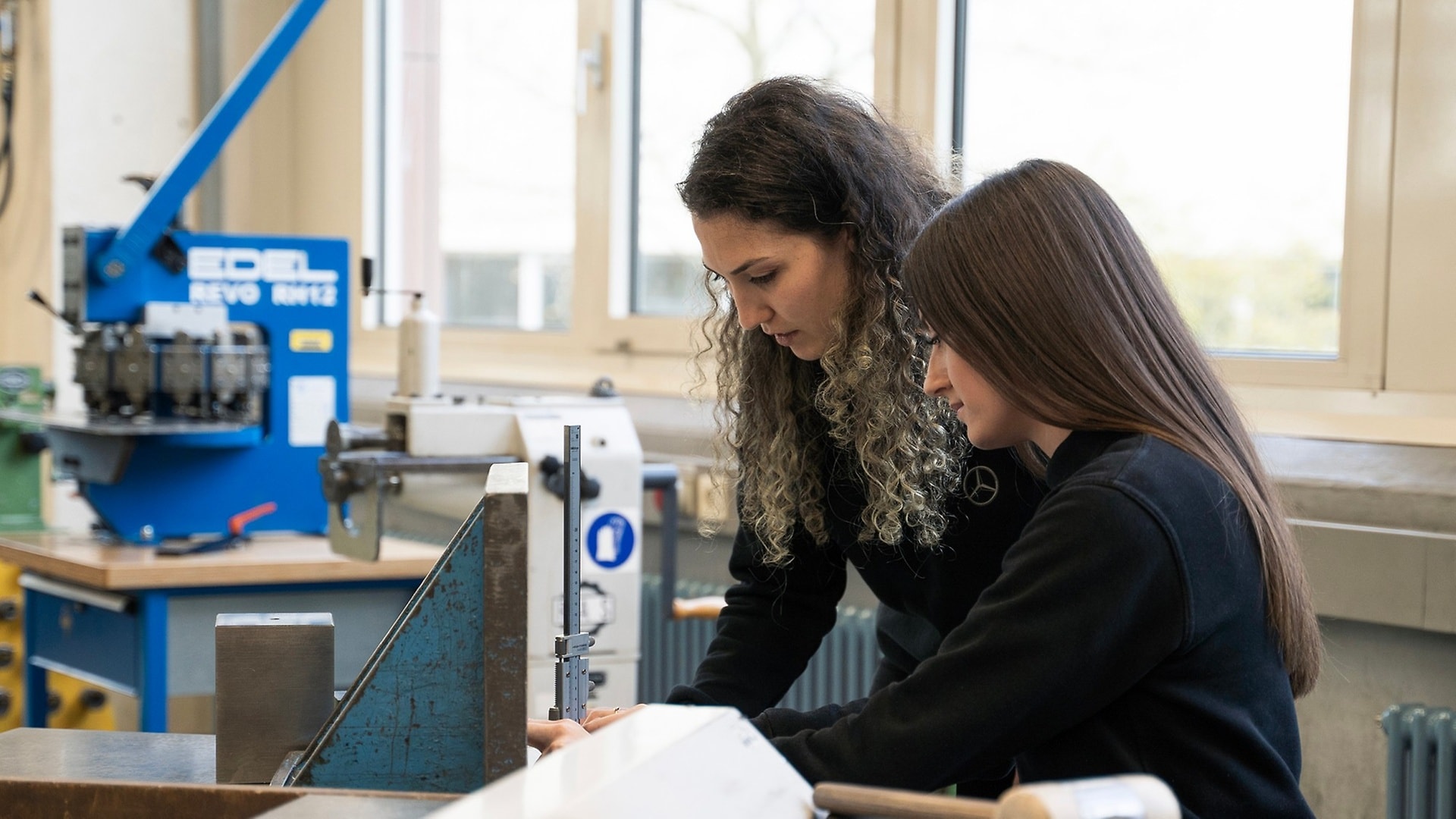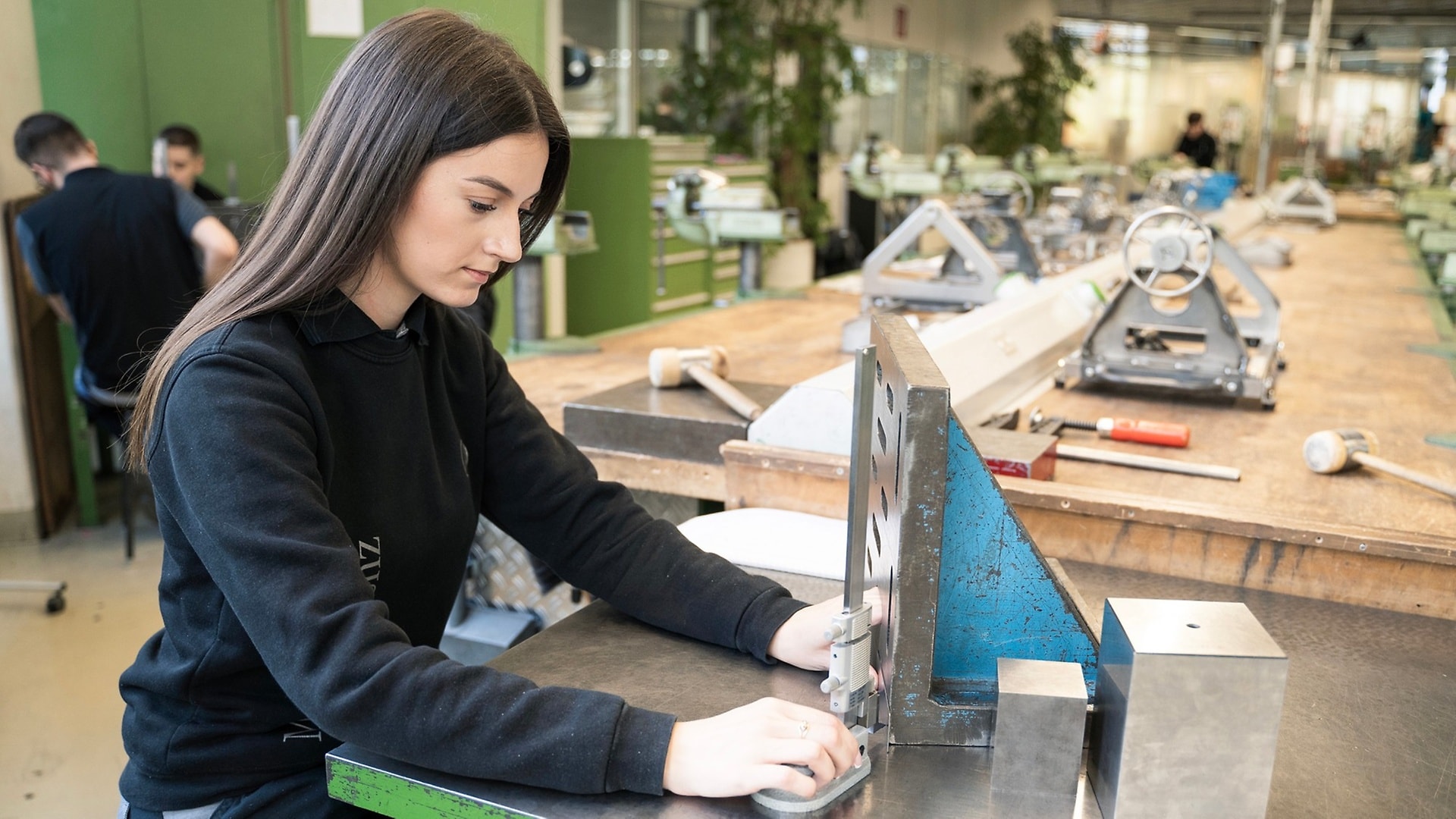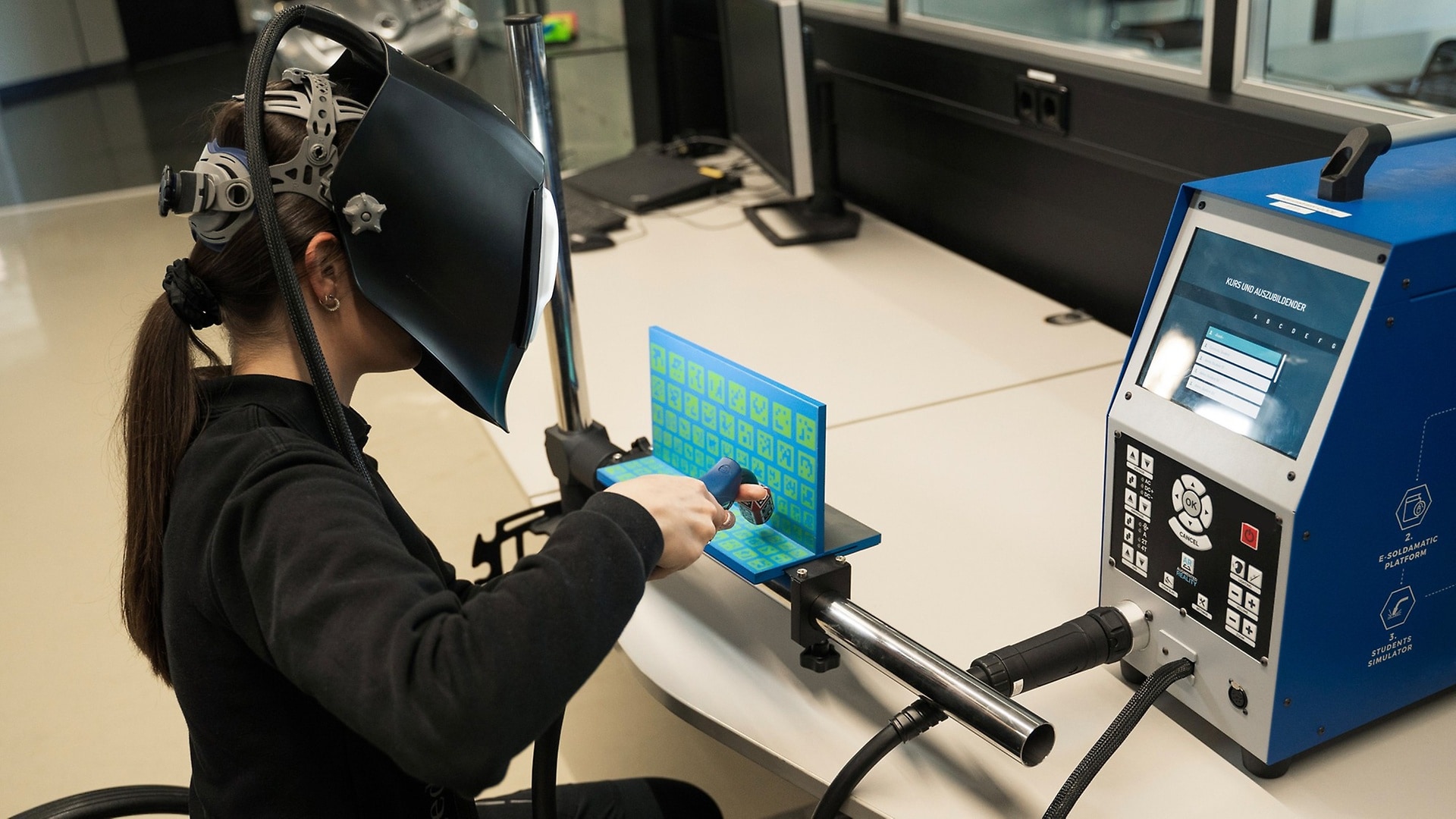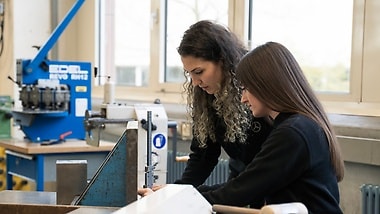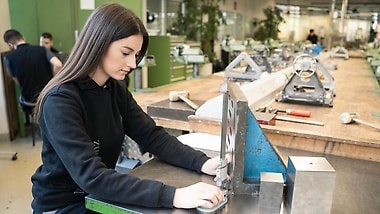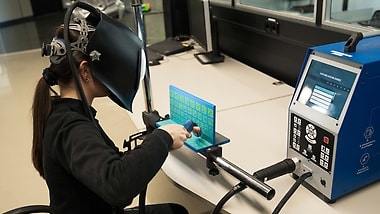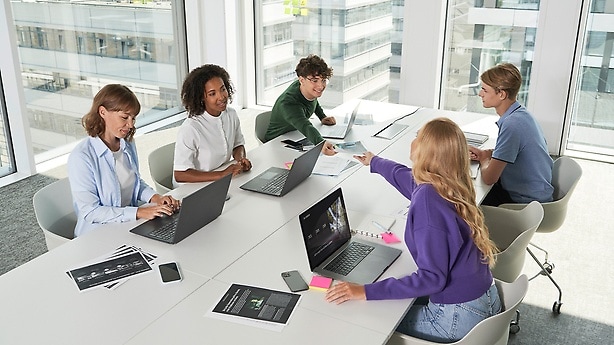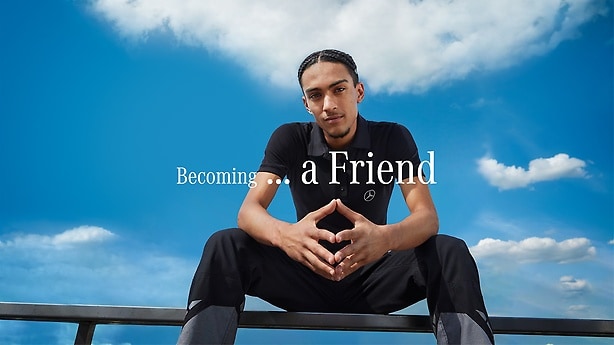Serenat, how was your training at Mercedes-Benz?
We got on really well in our training group as well. We often had interesting complementary projects such as "Let's get professional!", which was about organising the end-of-course celebrations for the trainees. I particularly enjoyed working in project groups because it was an opportunity to meet other people who share the same interests. It also gave me the chance for some personal development as a result of various assignments such as organising and leading group sessions. I used to be very nervous when speaking in public. The project work helped me overcome that fear.
And how did your early days as an instructor go?
It felt like a pilot project. It took only two years after my own training, when I worked as a junior craftsperson in body-in-white special protection, before I was back there as an instructor [laughs]. Once I'd finished my training, my training foreperson asked me whether I fancied sitting in on some sessions at the training department. I did that for three months. During that time, he left the role and there was a vacancy. I applied for it immediately and got through to the shortlist for the selection process, where I managed to win over the recruiters with my presentation. The condition was that I had to train as a foreperson. I'm in the middle of that now.
You have been working towards your qualification as an industrial foreperson in metalworking since 2021. How extensive is this in-service training?
It takes about two and a half years. I attend foreperson lessons from 4:30 p.m. to 7:00 or 7:30 p.m., depending on the subject, on Mondays, Wednesdays and Fridays. Sometimes I have lessons on Saturdays as well. I've already completed my first five exams. After a full day of working and then training, I am sometimes very tired. But I'm only a few months away from finishing the advanced training, and I'm really happy to have had this experience.
Tijana, what do you particularly value about your training at Mercedes-Benz?
The fact that Mercedes-Benz offers me a secure future once my training is complete and the opportunity to work with helpful colleagues and other trainees. I also like that I can choose some of my free days for myself to balance things out.
How can we picture your cooperation at work?
Tijana: My managers share their knowledge with me and help me with problems. That's great. For example, our instructor is teaching me the various steps involved in using the machinery. She is also there for me when I need help. At our regular “development dialogue” meetings, where we discuss my development, she gives me constructive feedback on my performance and I give my own assessment of how I think I'm getting on as well.
Serenat: The development feedback meetings help to determine where trainees' strengths lie and where they have room to learn more. They are also an opportunity to formulate SMART goals for further development. SMART stands for "specific", "measurable", "assignable", "realistic" and "time-related". At the end, she can give her own feedback on me and the relevant section of the training. Feedback is not a one-way street. And it's clear that I can help only if I know there's a problem. Communication is therefore absolutely essential in our cooperation.

